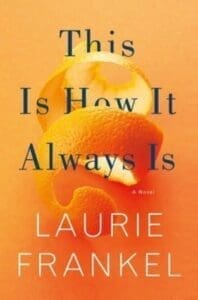The Tea Girl Of Hummingbird Lane by Lisa See– 384 pages
ARC courtesy of author
Book Blurb:
Li-yan and her family align their lives around the seasons and the farming of tea. There is ritual and routine, and it has been ever thus for generations. Then one day a jeep appears at the village gate—the first automobile any of them have seen—and a stranger arrives.
In this remote Yunnan village, the stranger finds the rare tea he has been seeking and a reticent Akha people. Li-yan, one of the few educated girls on her mountain, translates for the stranger and is among the first to reject the rules that have shaped her existence. When she has a baby outside of wedlock, rather than stand by tradition, she wraps her daughter in a blanket, with a tea cake hidden in her swaddling, and abandons her in the nearest city.
After mother and daughter have gone their separate ways, Li-yan slowly emerges from the security and insularity of her village to encounter modern life while Haley grows up a privileged and well-loved California girl. Despite Haley’s happy home life, she wonders about her origins; and Li-yan longs for her lost daughter. They both search for and find answers in the tea that has shaped their family’s destiny for generations.
My Review: 4.5 stars
The Tea Girl Of Hummingbird Lane is a compelling, historical look at tea, tradition, mothers, daughters and the power of love. I’ve read all of Lisa See’s books, and until now; my favorite was Snow Flower and the Secret Fan. After reading this one, it’s a close tie. This book enlightens the reader about the bond between women that takes time to make yet can easily break, the rich history of China’s hill people and the astonishing value of tea.
I had no clue about the power of tea, its creation, the medicinal value, the arduous task of making it or the commodification, as it became a global treasure. I imagine some readers finding the detailed history to distract from the story, but for me the tea represented its own character. Its presence held hope for many of the characters throughout the novel.
Tradition, or what I’d call superstitions, were an enormous part of the Akha hill tribe’s way of life. Some were utterly barbaric. If twins were born, they were considered a litter and therefore human rejects, as only animals produced litters. Death to the newborns, by the hands of the father, was protocol. Multiple practices were verbalized, performed or acted out as part of socialization, religion and community. On the flip side, some customs fascinated me such as the elaborate headdresses that the women and children wore. I attached some photos at the end of the post.
Lin-Ya was a strong protagonist and well developed as she grew from a young girl to an adult woman. Her journey from the start was difficult to say the least. Forbidden love, a hidden pregnancy, adoption, false friendships, lost love, breaking tradition, stopping her education and being banned from her village were just a few of the obstacles she faced. Of course all of her trials made for excellent fiction.
The ending left me waffling. On one hand it was exactly how I’d hope it would end, clean, neat and pat. But on the other I wasn’t sure it was realistic to all work out as it did. It certainly didn’t hamper the book for me. As I said, I enjoyed it from start to finish.
Quotes I liked:
Tea reminds us to slow down and escape the pressures of modern life.”
-“I’ve been told that newborns can’t see, but if that’s so, then how my daughter be staring into the depths of my soul?”
-“All you can do is live. You don’t have a choice. Life continues whether we want it to or not. The sun will rise despite our suffering.”



















